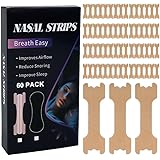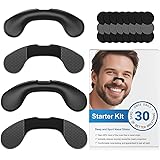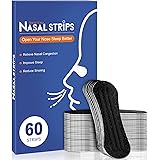Discover How to Sleep with Shoulder Pain: Your Guide to Pain-Free Nights
Living with shoulder pain often disrupts sleep. Many people struggle to find comfort. The video above shows helpful positions. This article expands on those insights. It offers a deeper dive into managing shoulder discomfort at night.
Understanding Nighttime Shoulder Pain
Shoulder pain can worsen when you try to rest. This happens for several reasons. Gravity pulls on your arm. Certain sleep positions add pressure. Your body also processes pain differently at night. Inflammation can build up from daily activities. This leads to more noticeable aches and stiffness.
Poor posture during the day contributes. Repetitive motions can also strain the shoulder. Sometimes, it’s an injury like a rotator cuff tear. Other times, conditions like arthritis are the cause. Finding relief is crucial for overall well-being. Quality sleep helps your body heal.
Best Sleep Positions for Shoulder Pain Relief
Finding the right position is key. The goal is to reduce pressure. It also involves keeping your shoulder joint aligned. Here are proven strategies:
1. Sleeping on Your Back
This is often the best choice. It keeps pressure off both shoulders. Your spine stays neutral. Your shoulders can rest naturally.
- **Pillow Placement:** Use a supportive pillow. Ensure it cradles your neck. It should not elevate your head too much.
- **Arm Support:** Place a small pillow under the arm of your injured shoulder. Imagine it as a gentle cradle. This slightly elevates your arm. It can reduce strain.
- **Body Alignment:** Keep your body straight. Avoid twisting or turning. This maintains optimal shoulder alignment.
2. Sleeping on Your Unaffected Side
If you prefer side sleeping, use your good side. Never sleep on the painful shoulder. This puts direct pressure on it. It will surely worsen your pain.
- **Pillow Between Knees:** Place a pillow between your knees. This keeps your hips aligned. It prevents twisting your torso.
- **Arm Position:** Bring your top arm forward slightly. Rest it on a pillow. Imagine hugging a large pillow. This prevents it from falling forward. This also stops it from pulling on your painful shoulder.
- **Body Pillow Use:** A body pillow is very helpful. You can hug it. It supports your top arm and torso. This prevents rolling onto the painful side.
3. Avoiding Stomach Sleeping
Stomach sleeping is generally not recommended. It forces your neck to turn. This creates tension in your shoulders. It can also strain your lower back. Try to transition away from this position. It will benefit your shoulder health.
Essential Tools for Pain-Free Sleep
The right gear makes a huge difference. Investing in support can pay off. It improves your ability to sleep with shoulder pain.
1. The Right Pillow
Your head and neck alignment are critical. A good pillow supports this. It keeps your spine straight. This reduces pressure on your shoulders.
- **Memory Foam:** These pillows conform to your shape. They offer consistent support.
- **Cervical Pillows:** They have a specific contour. This cradles your neck. It supports the natural curve of your spine.
- **Adjustable Fill:** Some pillows let you add or remove fill. You can customize the height. This helps achieve perfect alignment.
2. Mattress Support
Your mattress supports your entire body. A worn-out mattress sags. It can exacerbate shoulder pain. It fails to provide proper support.
- **Medium-Firmness:** This is often ideal. It’s firm enough for support. It’s soft enough for comfort.
- **Memory Foam Mattress:** These distribute body weight evenly. They reduce pressure points. They can be very beneficial for chronic pain sufferers.
- **Topper:** A mattress topper can enhance comfort. It adds an extra layer of cushioning. Choose one that offers good support, not just softness.
3. Body Pillows
Body pillows are versatile. They offer full-body support. They prevent unwanted movements.
- **Side Sleeper Aid:** They keep you from rolling onto your sore shoulder. They support your top arm.
- **Back Sleeper Aid:** They can provide comfort under your knees. This helps with overall spinal alignment.
Beyond Positioning: Daily Habits for Better Sleep
Sleep positions are important. But other daily habits matter too. They contribute to reducing shoulder pain.
1. Gentle Stretching and Exercise
Movement can reduce stiffness. Gentle stretches improve flexibility. They also increase blood flow. Consult a professional first. Ensure exercises are safe for your condition.
- **Pendulum Swings:** Lean forward slightly. Let your arm hang freely. Gently swing it in small circles.
- **Doorway Stretches:** Stand in a doorway. Place forearms on the frame. Lean forward gently. Feel a stretch in your chest and shoulders.
2. Heat or Cold Therapy
Apply heat or cold before bed. This can soothe your shoulder. Heat relaxes muscles. Cold reduces inflammation. Experiment to see what works for you.
- **Heat Pack:** Use a warm compress for 15-20 minutes. It can ease muscle tension.
- **Ice Pack:** Apply an ice pack (wrapped in a cloth) for 10-15 minutes. This helps with swelling.
3. Create a Relaxing Bedtime Routine
A consistent routine signals sleep time. This helps your body and mind relax. It prepares you for rest.
- **Warm Bath:** A warm bath can relax tense muscles. Add Epsom salts for extra relief.
- **Avoid Screens:** Turn off electronic devices. The blue light can disrupt sleep.
- **Read a Book:** Engage in a calming activity. Avoid stressful thoughts before bed.
4. When to Seek Professional Help
Sometimes, home remedies are not enough. Persistent pain needs attention. A doctor or physical therapist can diagnose. They can offer tailored treatments. Don’t delay seeking help. Ignoring chronic shoulder pain can lead to more severe issues.
It’s vital to find effective strategies to **sleep with shoulder pain**. By combining the right sleep positions, supportive tools, and healthy daily habits, you can significantly improve your comfort. Consistency is key. Implement these tips regularly for the best chance at truly pain-free sleep. Prioritize your shoulder health. Seek professional advice when needed. You deserve a good night’s rest.








